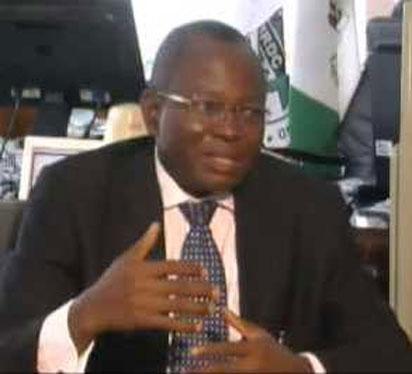
By Ebele Orakpo
Professor Peter Onwualu, former Director-General and Chief Executive Officer of Raw Materials Research and Development Council (RMRDC) is a visiting professor at the National Universities Commission where he is looking into research and innovation in Nigerian universities. In this chat with Vanguard Learning in Abuja, the agricultural engineer speaks on Nigerian school curriculum and says the problem is not the curriculum but its implementation.
Excerpts:
TO change or not to change curriculum:
 “I don’t believe the curriculum needs to be changed but it depends on the course. I have been abroad and I don’t see a lot of difference between the curriculum we are running and what they are running. The only difference is that the internship programme is taken very seriously. If you are a medical student, the internship program is as serious as passing your exam.
“I don’t believe the curriculum needs to be changed but it depends on the course. I have been abroad and I don’t see a lot of difference between the curriculum we are running and what they are running. The only difference is that the internship programme is taken very seriously. If you are a medical student, the internship program is as serious as passing your exam.
The same thing with engineering students; they do internship in industries. But the problem we have is that if you are an engineering student, you will even find it difficult to find where you will do your internship so the practical training is very minimal.
And even in the labs, you find that a lab that is supposed to be used by 10 students, is being used by 100 or 200 students with the result that you put them in groups so they have six or seven people crowding over one machine. At the end of the day, they just copy results and submit.”
Entrepreneurship programme:
“Some of those studying computer science don’t have real access to computers so that is where the problem is. The curriculum per say has really no problem, it is the implementation of the curriculum that is the problem because where deficiencies have been found, the NUC has actually tried to do something and that is why entrepreneurship is now compulsory so we can produce students that are not just looking for white collar jobs.
You must do entrepreneurship so that if you are a medical student, you also know how to set up medical business. You have students who graduate from engineering, looking for work. If they had learnt the entrepreneurship very well, they won’t be looking for work. If I studied electrical engineering, why should I be looking for work, even if it means learning how to service cell phones? We shouldn’t drive the issue of curriculum too far.
Why I am saying this is that the training we are supposed to get is broad. What university education does is to develop your mind so that when you come out, it is easy for you to adapt to any situation. “Take for example, somebody goes to the university to study mechanical engineering, depending on where you are coming from, somebody will say ‘ah, he studied mechanical engineering and he doesn’t even know how to service an engine.’
Mechanical engineering is not just about engines; a mechanical engineer can work in a brewery, cement factory, a roofing tiles company or in a hospital, maintaining the machines. So what university education in mechanical engineering gives you is a broad knowledge of engineering so that if you find yourself in a brewery, you can cope and that is why they start from what is called people engineer, principal engineer, until you become a chief engineer.
Mechatronicsengineering
But if you concentrate too much at the university level, you will not have that broad knowledge. For example, one of my sons said he wants to study mechatronics engineering, I argued and argued and at the end of the day, I let him go ahead.
“Mechatronics engineering is a new field that combines mechanical and electronics engineering and you are just learning automation/robotics, which is good because most of the devices we use today, even in assembling cars, use robots but what if you find yourself in an environment that is not automated? What I think we need to do in our education system is to make sure we have enough practicals, with the theory.
More theory, less practical:
“What is happening now is that if you ask somebody to describe an engine, he will write volumes but when you take him to an engine and say ok, what do you think is wrong with this engine? He is blank. The other problem I see with the issue of curriculum is that we have wittingly or unwittingly forgotten about hierarchy in life and that is why today, they are talking about HND and BSc being the same thing.
“Take the medical profession for instance; you don’t expect the doctor to have the same training as the nurse or the nurse to have the same training as the laboratory technician. Everybody has a role to play but the problem is that the nurse wants to be paid the same wage as the doctor and doctor wants to lord it over the nurse and it becomes a problem.”
Disclaimer
Comments expressed here do not reflect the opinions of Vanguard newspapers or any employee thereof.